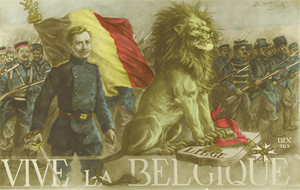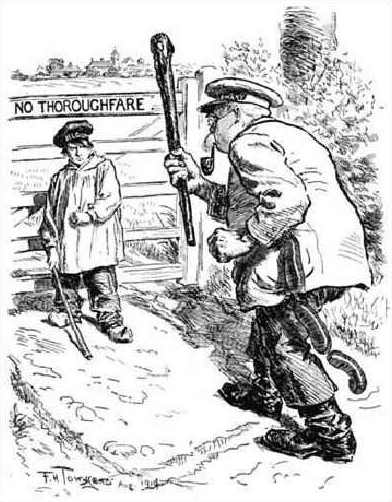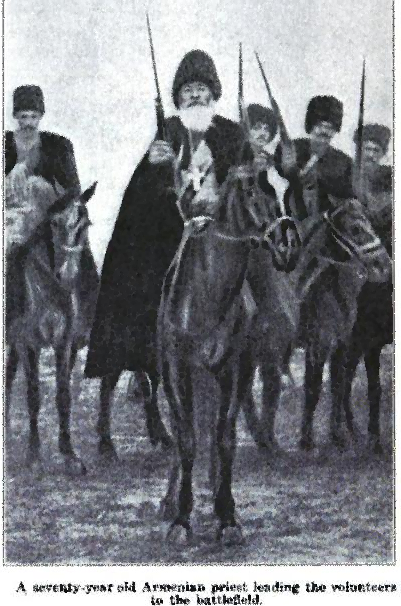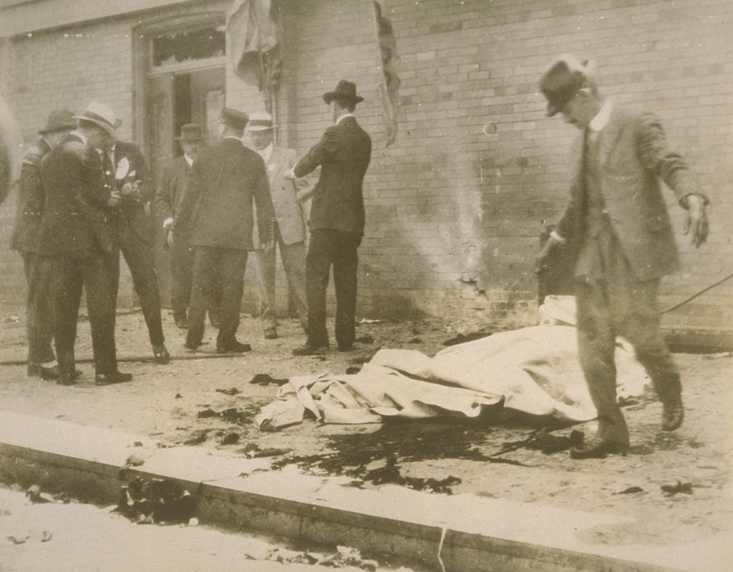The Mystery of the Green Ribbon
Armenian Refugees Flood Mediterranean Ports, Fight Bravely.
A Bomb in San Francisco
Special to The Great War Project.
(21-26 July) Since the first days of the war in August 1914, Germany has occupied most of Belgium
Fighting, though, is not underway in Belgium. The Western Front is fought mostly in northern France. But in Belgium, there is much anti-German political agitation.

Symbol of Belgian resistance
On July 21st a century ago, Belgians intend to celebrate the 85th anniversary of their independence. But not if the Germans have their say.
“Behind the German lines in occupied Belgium,” reports historian Martin Gilbert, “the strongest efforts had been made by the German occupation authorities to prevent the celebration” of this date.
The German governor of Belgium issues a warning. “I caution the population that it must refrain from all demonstrations.” Among those he specifies as punishable acts include “public reunions, parades, assemblies, harangues, and speeches, academic ceremonies, the placing of flowers before certain monuments, and the decoration of public or private buildings, the closing of stores, cafes etc. at unusual hours.”
Nevertheless, throughout the nation, the Belgians find a way of marking the date.
According to the head of the American legation in Brussels, “By one of those mysterious and tacit understandings that no one could trace to their source, everybody that day appeared wearing a green ribbon, green being the color of hope, and while it was no doubt discouraged, it was not yet forbidden the Belgians to hope.”

Little Belgium bars the way to the German onslaught, British cartoon.
The Germans are not amused by this, nor “by a brief popular demonstration of support” for the local Archbishop. Reports Gilbert, the Germans imposed a fine of one million marks on the citizens of Brussels.
The Archbishop wins the admiration and respect from the citizens of Brussels “for his public letters of protest against the excesses of the occupation.”
According to Gilbert, on July 27th one hundred years ago “there was an episode that confirmed the British view of German savagery.”
In the beautiful city of Bruges, in Belgium, the Germans execute the captain of a British steamer, the Brussels. Captain Charles Fryatt is found guilty by court-martial. His transgression: trying to ram a German submarine.
For this he receives great praise in Britain.
During his court-martial, the German authorities accuse Fryatt of being “a pirate for attacking the vessel that was attacking him.”
Elsewhere on the great battlefields of the First World War, the Armenian population of Turkey is still suffering from the vicious Turkish effort to wipe out the entire Armenian population in Turkey and adjacent lands.
In seeking to outlast their Turkish persecutors, “the great flight of Armenians,” reports historian Gilbert, “driven from their homeland amid scenes of brutality and terror had continued throughout the early months of 1916.”

Armenian priest leads Armenian resisters into battle, date and place uncertain.
Many make their way to the safety of Mediterranean ports, including Port Said in Egypt. Writes Ronald Storrs, a British officer in Egypt, which was then in British hands, “Port Said is swamped by Armenian refugees, dumped upon us from Cilicia [the southeast coast of Turkey] by French battleships.”
Some of the Armenians are integrated into Allied and Russian fighting units. “They are fighting very bravely,” reports Storrs.
Before the war, Turkey is viewed favorably by Europeans as the “First Gentleman of Europe.”
Storrs continues: “If the massacres of Urfa and Adana [Armenian towns in eastern Turkey] are not enough, let the present horrors suffice to erase from our political vocabulary the false and foolish legend [Turkey was known at the time] as the ‘The First Gentleman of Europe.’”
At this time a century ago, there is one development in the United States worth noting. On July 22nd during a parade in San Francisco calling for increased military preparedness, a bomb is thrown at the city’s stock exchange.

Aftermath of San Francisco bombing, July 1916.
The perpetrator of the crime is Thomas Mooney, “a socialist-anarchist opposed to the war,” reports Gilbert. The bomb kills nine and injures forty.
Mooney is sentenced to death. His sentence is commuted to life imprisonment.
